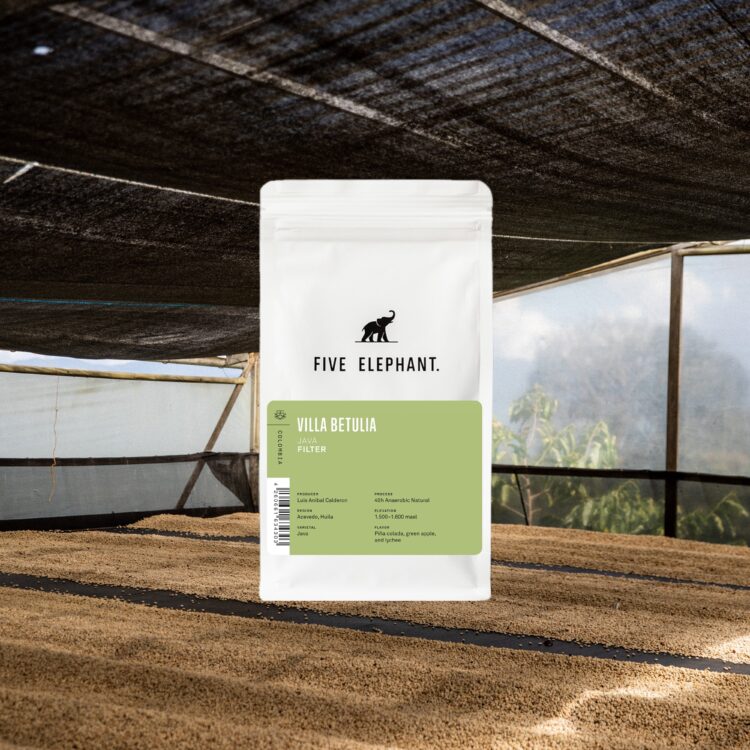Piña colada, inexperienced apple, lychee.
It’s a cup that opens in layers – vibrant tropical acidity, silky construction, and a end that retains stretching. That is a kind of uncommon heaps that feels each composed and wild on the similar time.
It comes from a spot of deep intentionality, formed by a 40-hour anaerobic fermentation that lifts the aromatics and deepens the fruit expression with out compromising readability.

Concerning the Farm:
Villa Betulia sits within the highlands of Acevedo, Huila, and has turn out to be some of the influential farms in Colombia’s specialty panorama. It’s run by Luis Aníbal Calderón, a second-generation producer whose story echoes the trajectory of Colombian espresso itself. For many years, the farm grew customary cultivars beneath the constraints of the C-market. However in 2011, with costs at a breaking level, Luis stood to lose all the pieces. As an alternative, he made a tough pivot towards threat, towards taste, towards the unknown.

In 2012, he planted his first 5,000 Gesha timber. Three years later, he started transitioning your complete farm to unique varieties, at a time when a lot of the nation was nonetheless centered on quantity.
Right this moment, Villa Betulia cultivates greater than 20 varieties, and Luis has turn out to be identified for his mastery of prolonged fermentations and gradual, managed drying as a strategy to protect integrity within the cup.
 Concerning the Selection:
Concerning the Selection:
This lot – a Java selection processed with a 40-hour anaerobic fermentation – is among the cleanest, most expressive examples we’ve tasted. Java itself is never seen in Colombia.
It’s low-yielding, prone to illness, and requires a precision most producers can’t afford to gamble on. However in Luis’s fingers, it really works. The fermentation brings a delicate carry to the aromatics – fruit-forward, however not loud – and the cup stays structured all over.

Why is Villa Betulia Particular?
What we love most about this espresso is its steadiness and brightness. It’s a reminder of what’s doable when producers chase nuance, not simply impression. And it suits right into a broader shift we’re seeing throughout Huila: a transfer away from generic profiles and towards identity-driven coffees, constructed from the bottom up.
Villa Betulia represents that shift. This isn’t only a particular lot – it’s the results of over a decade of deliberate change, from a producer who reimagined his farm at a second when it might’ve all ended.


